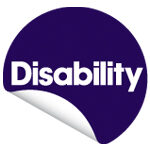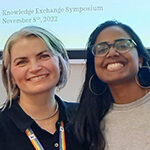Calais; an observation of the active volunteer
By Joanna-May Sutton Klein
Many people care about a plethora of issues within the realms of social justice and some have an ideological perspective. Occasionally something compels them to act on an issue. There is no science to explain all the reasons people become active in the name of their beliefs. This summer, as I watched the news coverage of the unfolding refugee crisis, I found the story resonating within me.
I am Jewish, and for me, I could not help but see history repeating itself in the Calais refugee camp. This evoked an unavoidable sense of duty within me; a calling for me to do something. I researched what was happening at the refugee camp, contacted charities and organisations and asked if my presence in the camp would be helpful. Yes, they said, and a few days later I found myself teaching in the school in the Calais refugee camp.
I am content that my impact in the refugee camp and on the lives of the refugees there was positive, however I struggled with the feeling that my actions were futile. Hundreds of thousands of refugees were making their way across Europe, yet I was teaching a maximum of 30 refugees; after 10 days I would be gone. I searched for ways in which I could leave permanent change. Education empowers people as it helps to build a platform for political change, but teaching at the school was a form of short-term humanitarian aid.
Whilst I was in Calais, Britain pledged £20 million to tighten security at the Calais port and Eurotunnel. At the same time, the refugees were surviving in conditions which have been alien to the north of France for many centuries. Humanitarian aid is undoubtedly a good thing, but unless it is coupled with political activism, it facilitates the failures of our governments.
Human rights movements must include a vision of lasting change in the political landscape. Clear leadership, a good media presence and funding are all important in making it easy for potential activists to get involved, but ultimately encouraging people to want to get involved is key. By telling stories, educating and forming strong arguments for their cause, we encourage a desire for action.
During my time in the refugee camp, I spoke with many other volunteers; some of whom had been helping for years, some just for a few days. In truth, I think that some of the volunteer missions were misguided and ended up disrupting the camp, despite their good intentions. Other volunteers were incredible in their commitment to the refugees. I observed that the most effective volunteers and activists were the ones who were clear in their mission, uncompromising in their ideology, yet also cautious and educated about the context of their endeavours.
Joanna-May Sutton Klein is a medical student




